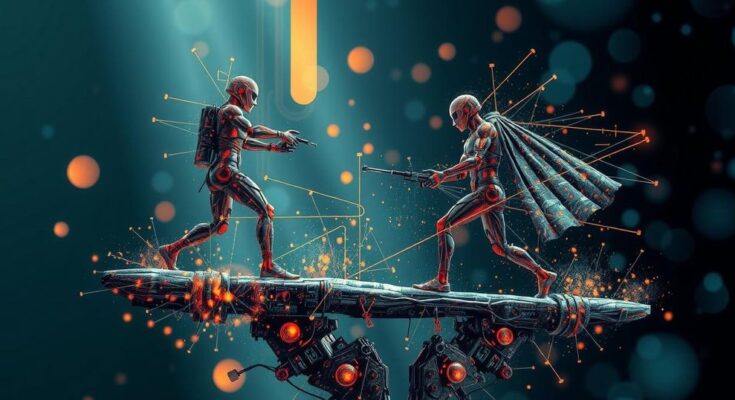New technologies like AI and blockchain hold great promise for advancing human rights but also raise serious concerns about potential adverse impacts on workers and marginalized communities. The role businesses play in this arena is crucial, as is the responsibility of governments to ensure corporate accountability. This exploration seeks to address the dual potential of technology, outlining key questions and necessary actions for human rights advocates and businesses alike.
The intersection of technology and human rights is becoming increasingly significant as innovations like artificial intelligence, automation, and blockchain emerge as powerful allies for upholding human dignity and equality. These tools have the potential to transform lives positively; however, they also pose serious risks that could undermine workers’ rights and lead to adverse human rights outcomes. The responsibility of businesses in this evolving technological landscape cannot be understated. It raises critical questions: Will companies prioritize human rights when developing and deploying new technologies? Are they implementing necessary safeguards to prevent potential harms? Simultaneously, governments must fulfill their duty to ensure corporate accountability. With the rapid technological advancements, crucial inquiries need addressing regarding existing policies and legal frameworks. Are our current advocacy strategies adequate to deal with the unknown risks associated with these developments? This exploration aims to evaluate the dual-edged nature of technology in human rights, probing both its benefits and potential hazards. Key questions guide this inquiry: How can technology genuinely support human rights while avoiding pitfalls such as exacerbating inequality? What frameworks, like the UN Guiding Principles on Business and Human Rights, can prevent and mitigate these risks? Moreover, what strides can advocates make to protect marginalized communities affected by technological progress? Lastly, we must assess how these technologies influence sustainable development and human rights in the Global South.
As technology continuously shapes our world, its capacity to influence human rights is profound and multifaceted. Innovations like AI and blockchain can either uplift societies or deepen existing inequities. Understanding this duality is vital for creating frameworks that ensure technology serves humanity positively, while also recognizing the corresponding risks these advancements bring to workers and marginalized groups globally. The need for responsible development and deployment of these technologies has never been clearer as we confront their implications.
In summary, while technology offers unprecedented opportunities for enhancing human rights, it also presents significant challenges that must be strategically addressed. The active engagement of businesses, governments, and advocates is vital to ensure that advances do not eclipse the moral and ethical standards we strive to uphold. By fostering collaboration and employing the right frameworks, we can navigate these complexities to create a more equitable digital future for all.
Original Source: www.openglobalrights.org
